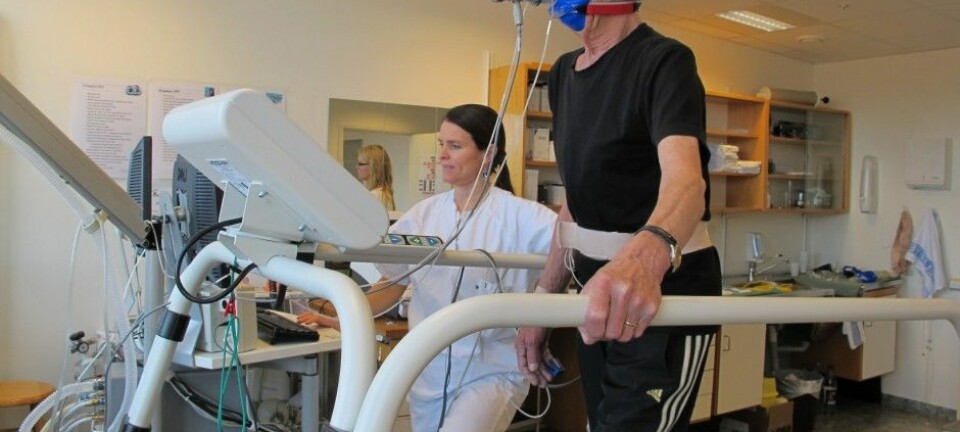
High levels of vitamin B12 can increase lung cancer risk
High levels of B12 in the blood are linked to 15 per cent increased risk of lung cancer, according to a major international study. That’s one more reason to stop buying supplements and eat a healthy, varied diet, researchers say.
An assessment of individuals from 20 large population-based studies now confirm that high levels of vitamin B12 in the blood can increase a person’s risk of lung cancer. The results have been published in the International Journal of Cancer.
Among the studies that was used in the assessment was HUNT, the Nord-Trøndelag Health Study. The 20 population-based studies have worked together for a number of years as the Lung Cancer Cohort Consortium.
Arnulf Langhammer is a professor at the Norwegian University of Science and Technology (NTNU) who works at the HUNT Research Centre. He was one of the authors of the new study.
He says it’s absolutely vital to combine large population-based studies so researchers can tease out different factors that can cause lung cancer.
15 percent increased risk
The new study compares 5183 patients who have developed lung cancer with the same number of individuals who do not have the disease.
The researchers were able to look at frozen blood samples taken from patients years ago. Patients involved in the HUNT studies had samples taken during HUNT2 (1995-97) and HUNT3 (2006-2008).
“We examined the levels of B12 and many other vitamins in the blood samples to see if it affected the risk of developing lung cancer in later years,” Langhammer explained.
The researchers included as many patients as possible who were non-smokers but who nevertheless developed lung cancer. Smoking is the main cause of lung cancer, but now that many fewer people smoke, researchers wanted to look for other causal factors.
“We saw that high B12 levels increased the risk of lung cancer. The higher the level, the higher the risk of developing lung cancer in later years. The results are important regardless of whether people smoke or not,” Langhammer said.
For each doubling in B12 levels, the risk increased by 15 percent, according to the study.
Mendelian randomization
To increase the certainty that high B12 levels were in fact a cause of the cancer, and not that early stage lung cancer causes higher levels of B12, the researchers conducted what is called Mendelian randomization.
This means that researchers looked for a correlation between a gene variation that affects the level of a risk factor and the disease in question.
“Some patients have genetically high B12 levels. We went through 8 gene variants that result in higher levels of B12, and found that there was an increased incidence of lung cancer in this group,” Langhammer said. “The fact that we found a connection both between the level of B12 in previous blood tests and between gene variants that result in high vitamin B levels and lung cancer strengthens our conclusion.”
The more, the better?
The researchers wanted to see if they could identify factors that are early indicators of an increased cancer risk.
B12 and other B vitamins have long been discussed as a possible influence on cancer risk, although previous research has suggested a more complicated relationship.
Langhammer says there is a tendency for people to think that the more vitamins, the better.
“But the body is a finely balanced system. You don’t need to consume more vitamins or minerals than the body actually needs, and it may be that B vitamins are of the type where it is particularly important not to take too much,” Langhammer says.
A number of people need B12 supplements because they have a disorder called pernicious anemia, which makes the body unable to absorb enough from the usual diet. Langhammer says people who do not have a B12 deficiency should not take supplements.
“Everything you consume as extra vitamin supplements beyond what you need for normal levels is unnecessary, and can be harmful. People who eat a varied and regular diet and live moderately, usually do well,” he said.
Cause unknown
The researchers do not know exactly why high levels of vitamin B12 in the blood increase the risk of lung cancer.
“B12 usually helps in the body’s repair processes. We do not know why this vitamin has such an unfortunate effect on lung cancer risk. But studies like this provide a good basis for studying the mechanisms that lie behind these findings,” Langhammer says.
----------
Read the Norwegian version of this article at forskning.no


































